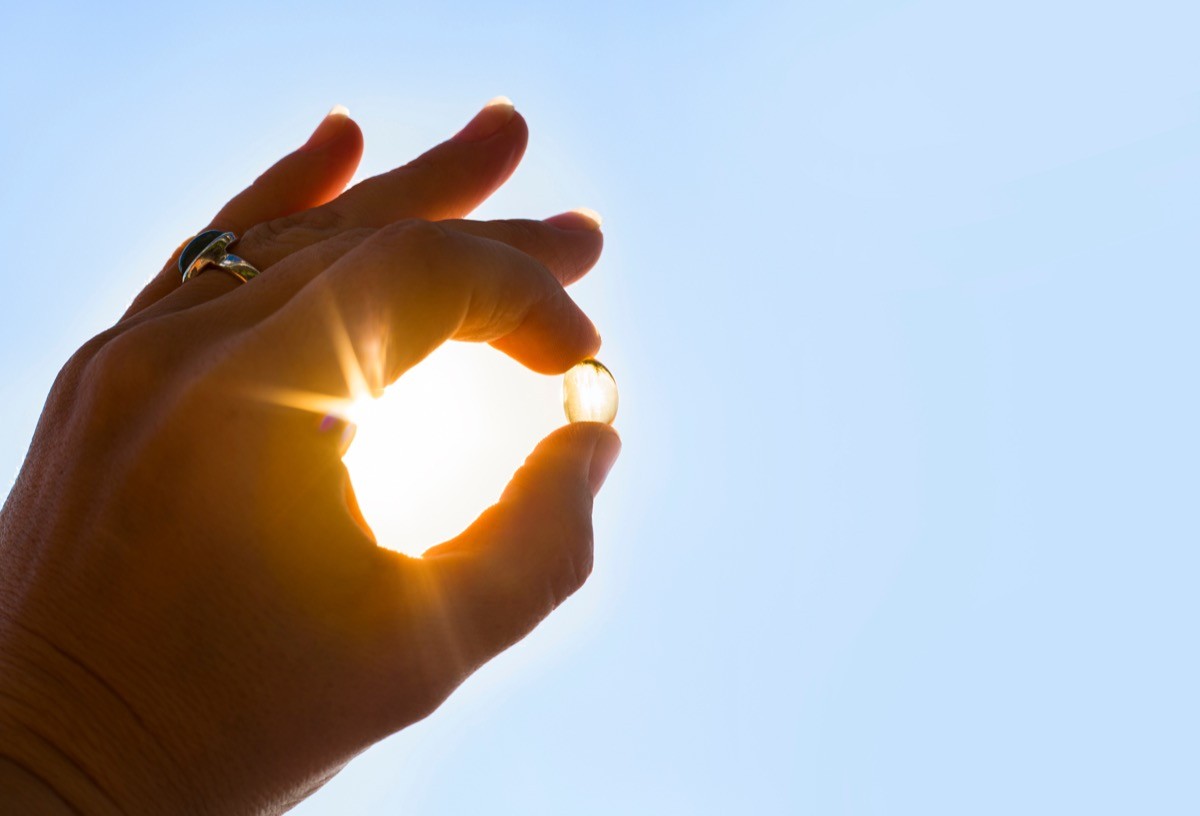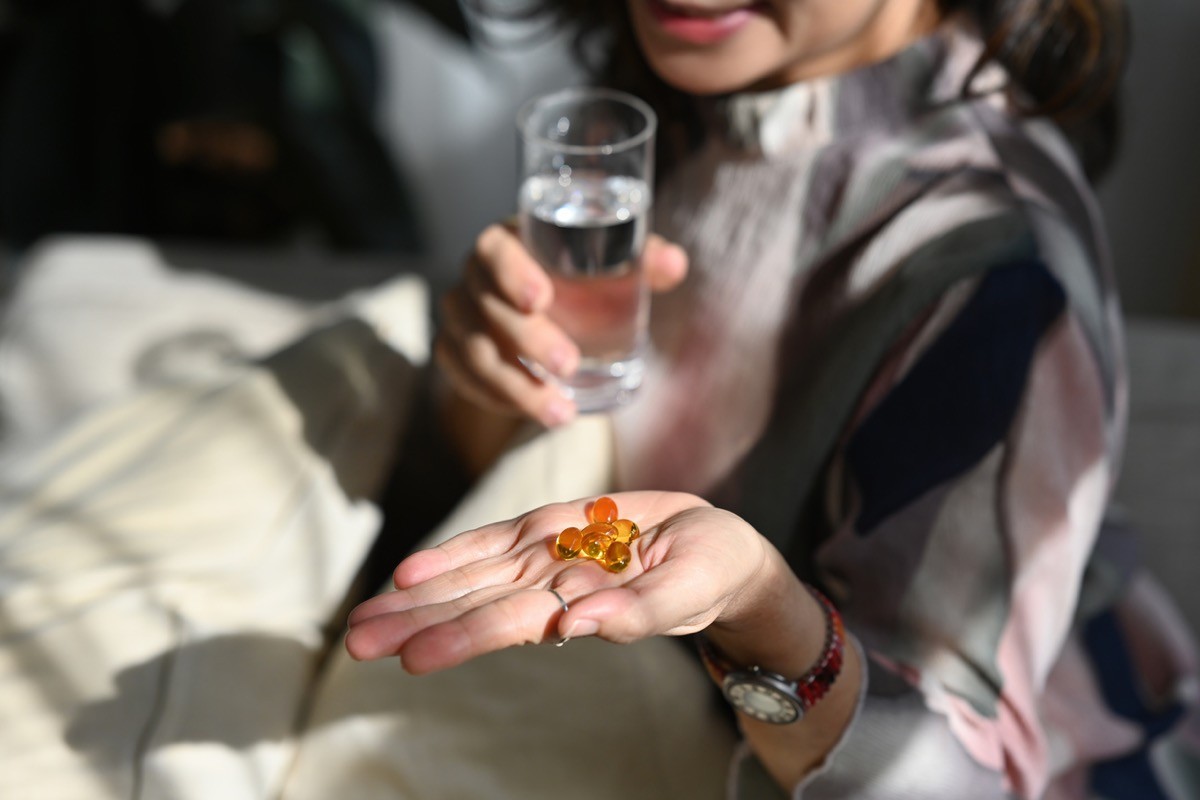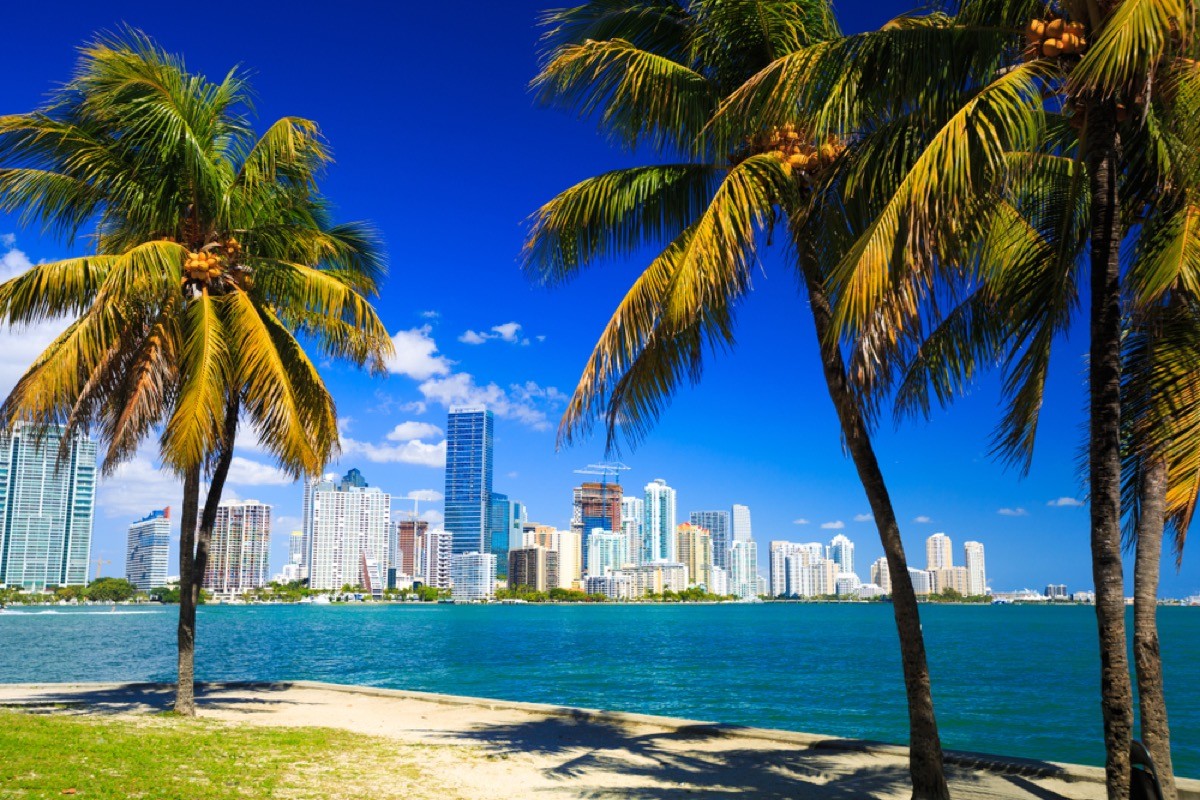This Popular Supplement Could Be Harmful for Your Bones—Here’s What to Avoid

Calcium and vitamin D are crucial for bone health—but you can have too much of a good thing. “People often assume that if some is good, more is better,” says Dr. JoAnn E. Manson, the Michael and Lee Bell Professor of Women’s Health at Harvard Medical School. “This is generally not the case, and certainly is not true of vitamin D. While there is no question that vitamin D and calcium are essential to bone health, it appears that very high doses of vitamin D don’t provide further benefits for bone health and may actually have a harmful effect.” Here’s what scientists say about supplementing with too much vitamin D.
RELATED: 7 Calcium Deficiency Symptoms.
Vitamin D Sweet Spot

A study published in JAMA shows taking high levels of vitamin D can backfire. Researchers gave 300 study participants 400 IU, 4000 IU, or 10,000 IU a day for three years, and checked their bone health before and after the experiment. “Compared to just a modest dose of 400 IU a day, the study found no improvement in bone density at the higher doses and even a suggestion that there might be some harm by reducing bone density,” says Dr. Manson. “This has been found in other randomized trials of very high-dose vitamin D.”
How Much Vitamin D Should I Take?

You don’t need to take massive amounts of vitamin D supplements to get benefits. “This is further evidence that high doses are not advisable,” says Dr. Manson. “In terms of bone health, once you get to a certain level of intake, increasing that amount isn’t going to be beneficial. It’s reasonable to take a small or moderate amount of vitamin D, such as 1,000 IU a day, if you’re concerned about whether you’re getting enough.”
Vitamin D In Foods

It is preferable to get vitamin D from food and adequate sun exposure, when possible. “Vitamin D is found in some foods, such as egg yolks, cheese, cod liver oil, beef liver and fatty fish like tuna, salmon, sardines, herring and mackerel,” Donald D. Hensrud, MD, tells the Mayo Clinic. “But the amount of vitamin D in these foods is quite small. In the U.S., many people get the bulk of their dietary vitamin D from foods that are fortified with it, including milk, cereals and some brands of yogurt and orange juice.”
Vitamin D From the Sun

Getting the correct amount of sun exposure is vital for vitamin D production. “The major source of our body’s vitamin D comes from our own production in the skin,” Robert D. Ashley, MD, tells UCLA Health. “This requires the ultraviolet rays from sunlight to form vitamin D3; both the liver and the kidneys are needed to then create the active form of vitamin D. Those with inadequate sun exposure—including disabled people, infants, the elderly, dark-skinned people, and those who live at northern latitudes during the winter — are at risk of low vitamin D3 production, which can lead to a loss of bone density and an increased risk of fractures.”
RELATED: 16 Vitamin D Deficiency Symptoms.
Geographical Factors

Where you live can impact the amount of sun exposure you have access to. “In the summer in Miami—with 25 percent of the body exposed to the sun—a person would need only 3 minutes of sun exposure to make a sufficient amount of vitamin D,” Dr. Ashley says. “That same person — when placed in Boston in the winter — would need 23 minutes at noon to produce enough vitamin D.”
How Much Sunshine Is Safe?

Doctors and scientists warn us of the dangers of excessive sun exposure—so what is the right amount? “There is a balance—a Goldilocks zone—between sufficient sun exposure to make vitamin D3 and the risk of getting skin cancer,” Dr. Ashley says. “Because our fat cells can store vitamin D for months, you don’t need to worry if there are days when you don’t get enough sun exposure. You’ll still be safe from the detrimental bone effects of low vitamin D if you get enough sun other days. So take some time to be outside.”